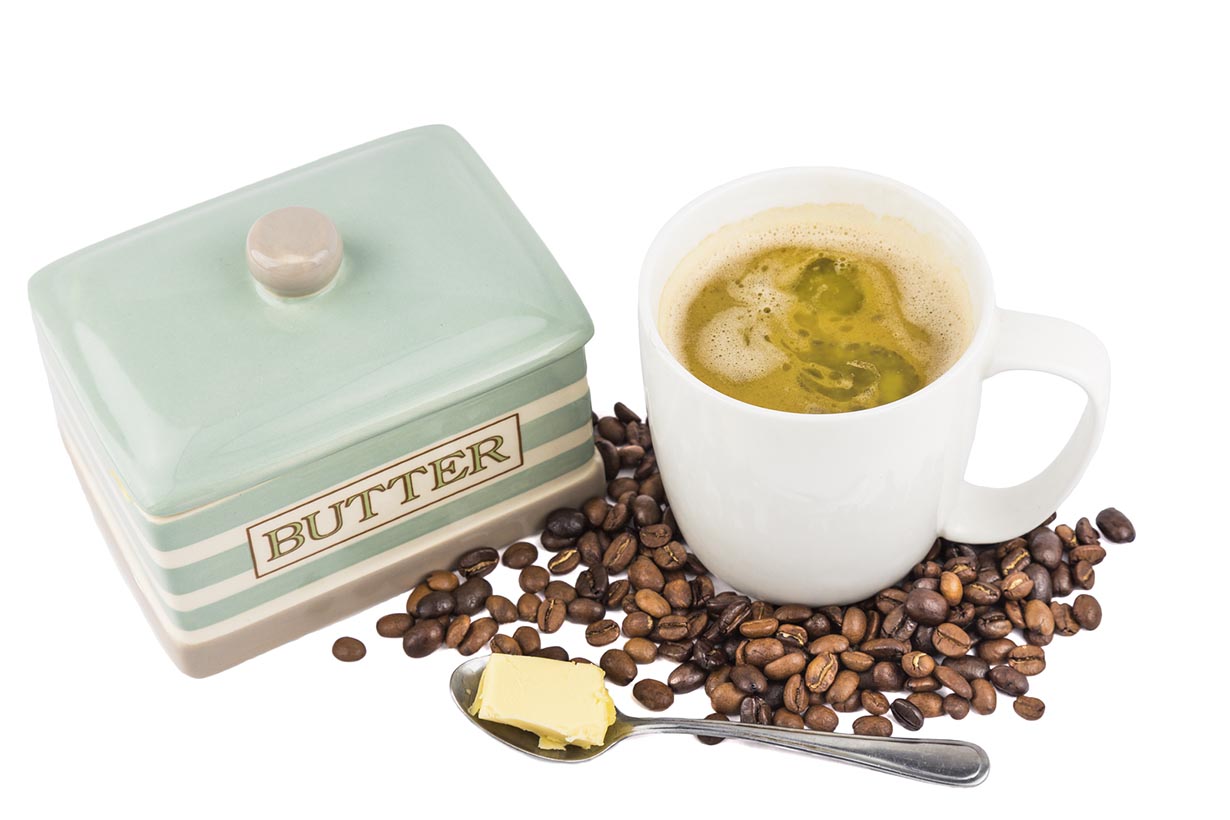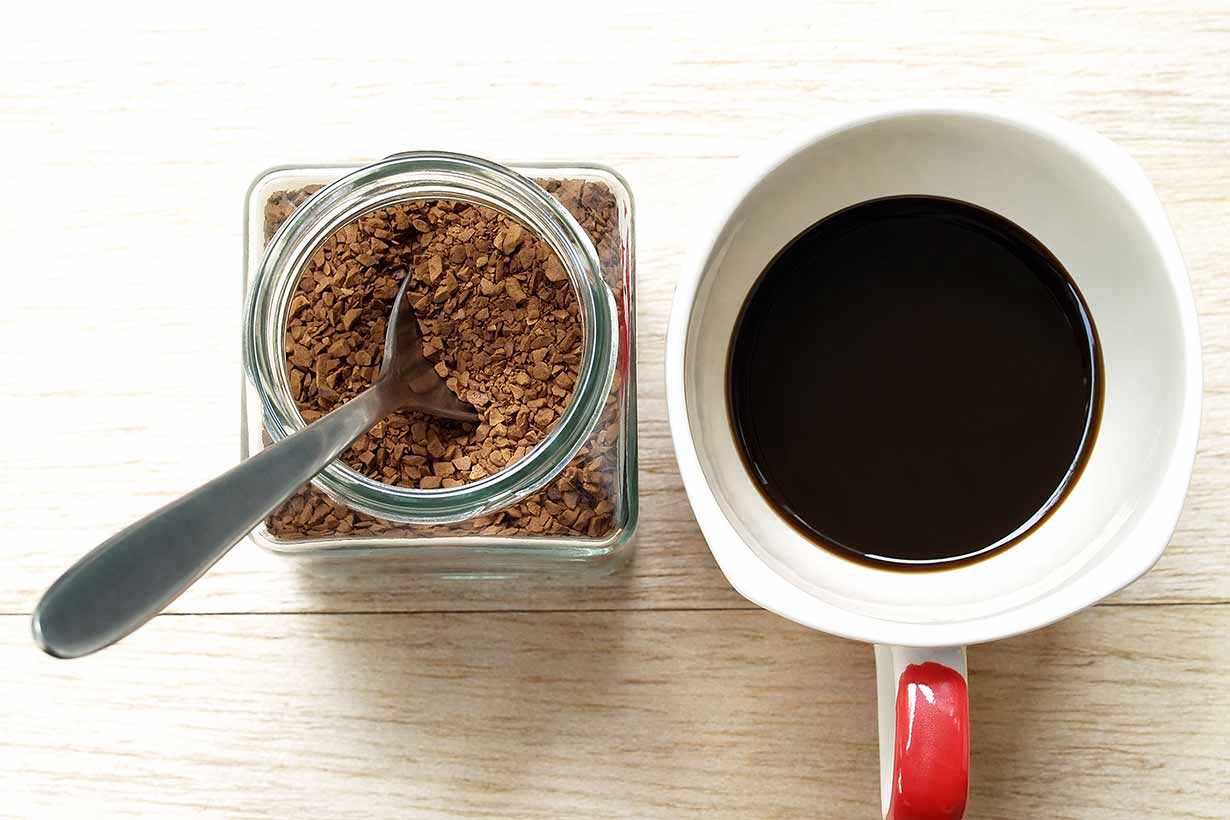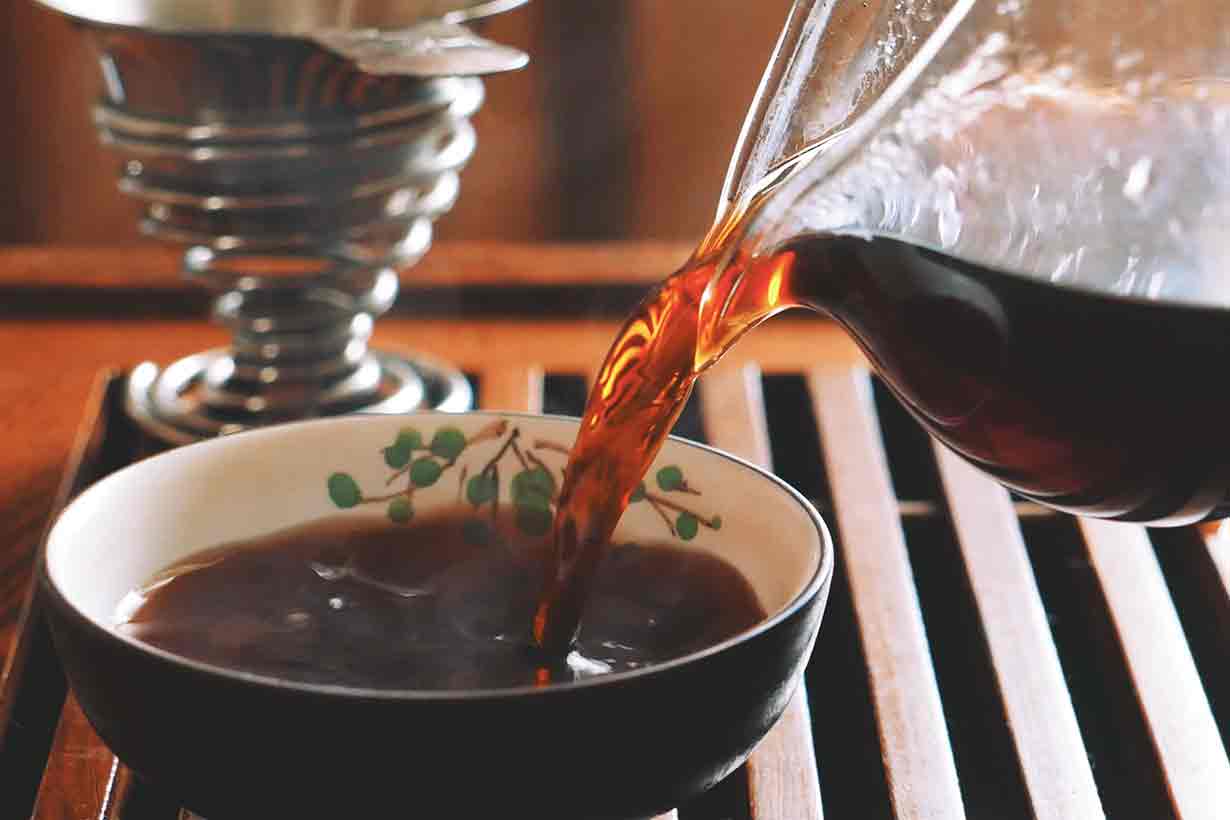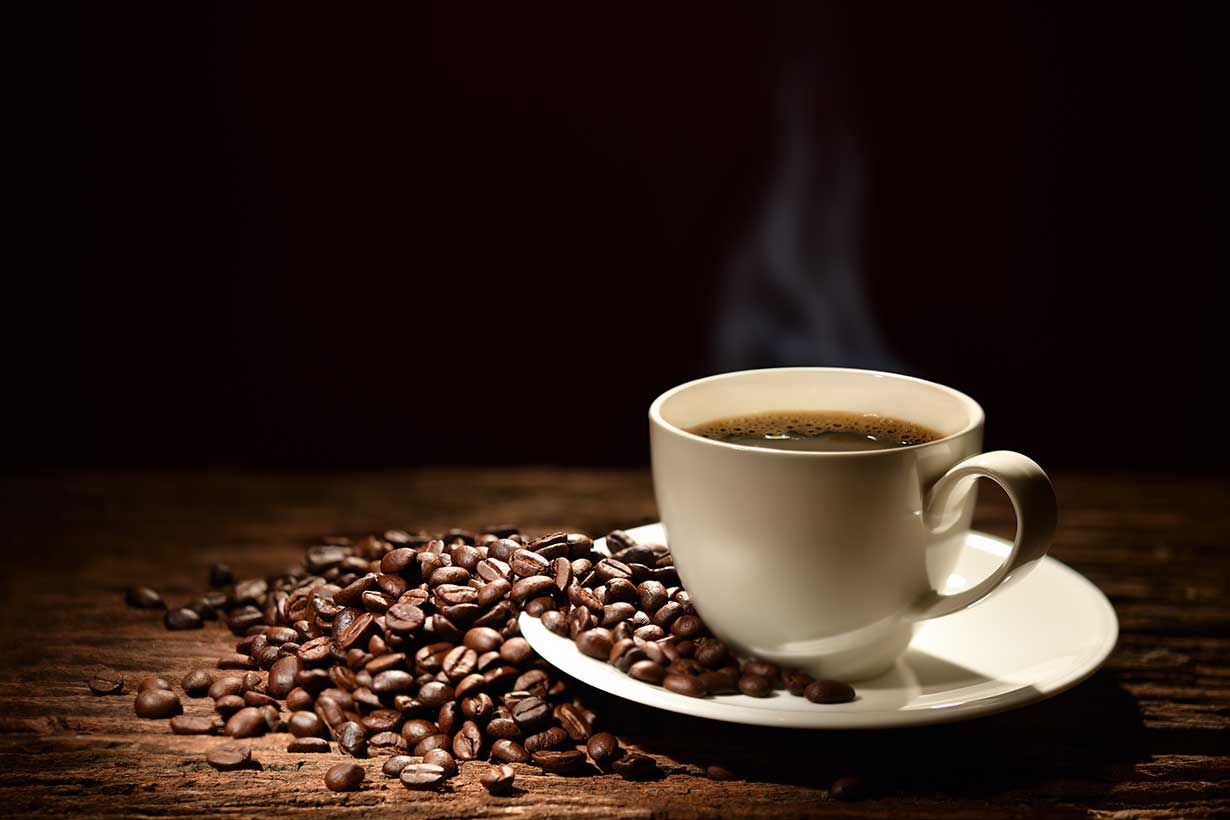Bulletproof coffee first hit the scenes in 2009 and since that time has experienced significant growth.
Some people enjoy drinking this buttered coffee each morning, claiming it helps with weight loss, concentration, and energy levels. But as with many claims, we need to verify their accuracy.
This article takes an in-depth look at Bulletproof Coffee and whether it’s a health-supportive drink or one to limit.
What is Bulletproof Coffee?

At its most basic, Bulletproof Coffee is simply coffee with added butter or ghee and medium chain triglycerides (MCTs) (1).
MCT oil is a supplement developed by isolating the medium-chain triglycerides (fats) in coconut oil or palm kernel oil. Medium-chain fats are faster to absorb, providing a quicker release of energy than long-chain fats (2).
Developed by Dave Asprey, Bulletproof Coffee first came to fame in 2009, when Dave shared his recipe with the world on his blog.
He probably did not expect the wild success since then, but the drink has become a national hit in America.
As the drink contains only fat and no carbohydrates, it is particularly popular for followers of ketogenic and very-low-carbohydrate diets.
So, Why Put Butter in Coffee?
The stated purpose of Bulletproof Coffee is to provide “steady lasting energy,” “suppressed hunger,” and “mental clarity” (1). However, these claims are aimed at marketing the product, are anecdotal, and have not been supported by clinical evidence.
Because the drink is fairly calorie-dense, people often use it as a replacement for a traditional breakfast, which they claim helps them lose weight.
Key point: Bulletproof is a coffee drink that contains a high amount of fat from butter and MCT oil.
Bulletproof Coffee Recipe
Here are the ingredients in the standard recipe for Bulletproof Coffee (1, 3):
- 1 cup of brewed coffee
- 1 tbsp of grass-fed butter (unsalted) or ghee
- 1 tbsp of MCT oil
There is a lot of emphasis on putting ‘grass-fed’ butter in the coffee, as proponents claim that grass-fed animals produce butter with a healthier nutrient profile.
However, while there can be some slight differences, it is worth noting that these nutritional differences are relatively minor.
How to Make Bulletproof Coffee
According to the Bulletproof website, the best way to make Bulletproof coffee is as follows (3):
- Prepare a brewed coffee.
- Add the brewed coffee, MCT oil, and butter to a blender.
- Blend for up to 30 seconds until everything is all foamy.
This process is clearly more time-consuming than brewing a regular coffee or making a cup of instant coffee.
However, it would also be fair to say that it is faster than making coffee and some food for breakfast.
Key point: Bulletproof coffee consists of brewed coffee, butter or ghee, and MCT oil.
Nutrition Facts
Next, let’s examine the nutritional profile of a cup of Bulletproof coffee.
For a quick summary:
- The drink contains a total of 255 calories.
- There are no carbohydrates or protein in the coffee.
- It is very high in fat.
- Essential nutrients include riboflavin and vitamin A, as well as eight more vitamins and minerals which are only present in small amounts.
According to USDA data, here are the nutritional values for a Bulletproof coffee made with an 8-ounce cup of brewed coffee, a 14-gram tablespoon of ghee, and a 15-ml tablespoon of MCT oil (4, 5, 6).
Calories and Macronutrients
- Calories: 255 kcal
- Carbohydrates: 0 g (0 % DV)
- Fiber: 0 g (0% DV)
- Sugars: 0 g
- Fat: 28.0 g (36% DV)
- Saturated fat: 22.67 g (81% DV)
- Monounsaturated fat: 4.06 g
- Polyunsaturated fat: 0.52 g
- Protein: 0.29 g (<1% DV)
- Cholesterol: 36 mg (12% DV)
As we can see, a typical Bulletproof coffee contains zero carbohydrates, very little protein, and a significant amount of fat and saturated fat.
Vitamins and Minerals
- Riboflavin (B2): 0.183 mg (14% DV)
- Vitamin A, RAE: 118 mcg (13% DV)
- Niacin (B3): 0.458 mg (3% DV)
- Potassium: 118.7 mg (3% DV)
- Thiamin (B1): 0.034 mg (3% DV)
- Vitamin E: 0.416 mg (3% DV)
- Choline: 9.36 mg (2% DV)
- Magnesium: 7.2 mg (2% DV)
- Folate, DFE: 4.8 mcg (1% DV)
- Vitamin K: 1.44 mcg (1% DV)
Among these vitamins and minerals, we can see that the key essential nutrients in Bulletproof coffee are riboflavin and vitamin A. The vitamin A content comes from the ghee, while most of the other nutrients come from coffee.
The drink also contains micronutrients including calcium, copper, iron, phosphorus, sodium, and zinc. However, these nutrients are only present in small concentrations.
Note: Percent daily values (% DV) are based on a typical 2,000 calorie diet.
Key point: Aside from large amounts of fat, riboflavin, and vitamin A, there is limited beneficial nutrient content in Bulletproof coffee.
Does Putting Butter In Your Coffee Have Any Benefits?
Bulletproof Coffee would not be popular if people perceived it to have no benefits.
Can It Help With Weight Loss?
One of the purported benefits according to proponents is that it can help assist with weight loss, but is there any truth to this?
Firstly, depending on the overall dietary pattern, proponents replacing a typical breakfast with a cup of Bulletproof Coffee may see some degree of weight loss. While the company may claim their “high-quality” ingredients cause this, the more accurate, scientifically valid reason would be reduced energy intake.
In this regard, weight loss would be seen if the overall diet results in a calorie deficit—where fewer calories are consumed than an individual burns. For instance, replacing cereal, pancakes, or a cooked breakfast and glass of orange juice with one cup of Bulletproof Coffee may significantly lower calorie intake at breakfast, which may result in a daily calorie deficit.
That said, this is nothing specific to Bulletproof Coffee, and replacing a large breakfast with a glass of milk and piece of fruit would have a similar effect.
Polyphenol Content
Another potential benefit is that there are significant amounts of polyphenols in coffee, so this also applies to Bulletproof coffee. That said, there is no need to add oil and butter to your coffee for the potential benefits provided by polyphenols.
Polyphenols are a class of phytonutrient, bioactive compounds found in plant foods (7, 8).
In fact, a study investigating polyphenol intake in the US between 2007 and 2016 found that coffee was the largest contributor of dietary polyphenols, accounting for 39.6% of total intake (9).
Although research is ongoing and further studies are necessary, studies indicate that specific polyphenols—like those found in coffee—could have several potential benefits, including a reduced risk of various chronic diseases (10, 11, 12, 13).
Key point: It is possible that Bulletproof coffee could help with weight loss if it was used to replace a larger breakfast. However, any smaller breakfast option could have the same effect, and this isn’t anything unique to the drink. Like all coffee, Bulletproof coffee is also a rich source of polyphenols.
Downsides of Bulletproof Coffee
There are several clear drawbacks of Bulletproof Coffee.
Displacement of Nutrient-Rich, Whole Foods
Potentially the most important downside of Bulletproof Coffee is that the drink is often used to displace food.
For instance, instead of consuming 255 calories of butter and oil, you could instead consume two large eggs and half an avocado for only 303 calories (14, 15).
Likewise, porridge made with 50 grams of oats and a cup of milk would have a calorie content of approximately 343 calories (16, 17).
Since Bulletproof Coffee is popular among followers of a low-carb diet, how does it compare to a small low-carb cooked breakfast?
A small, low-carb breakfast option could be:
- 1 medium (50g) egg
- 4 slices of cooked turkey bacon
- 1/4 avocado
Based on USDA data, this small breakfast would provide 277 calories, 6 g of carbohydrates, 21 grams of fat, 4.94 grams of saturated fat, and 16.89 grams of protein (18, 19, 20).
While similar in calories to a cup of Bulletproof Coffee, this meal would also provide significant amounts of B vitamins, choline, folate, copper, potassium, selenium, zinc, and it would also have significantly less saturated fat.
Nutritional Value: Whole Food vs. Butter in Coffee
Compared to whole-food breakfast options, consuming coffee containing butter and oil offers a significantly lower profile of essential nutrients.
If an individual enjoys it, then there is no real issue with drinking an occasional cup of Bulletproof Coffee.
However, if the drink regularly displaces more nutrient-rich food or results in excessive saturated fat intake, then it would be a net negative nutritionally.
Bulletproof Coffee Contains High Amounts of Saturated Fat
As we saw in the earlier nutritional data for Bulletproof Coffee, the drink contains a large amount (22.67 grams) of saturated fat.
The current dietary guidance for saturated fat intake is to keep intake to under 10% of daily energy intake. Since 22.67 grams of saturated fat is approximately 204 calories, this is more than the total recommended saturated fat intake, based on a 2000-calorie diet (21, 22).
Consuming high levels of saturated fat can increase LDL cholesterol (LDL-C) levels, with higher LDL-C being strongly associated with cardiovascular disease and mortality (23, 24, 25).
Final Thoughts
Bulletproof Coffee is a combination of coffee, butter, and oil.
While some proponents claim the drinks helps support weight loss and provides energy, there is no notable scientific research on Bulletproof Coffee.
However, it has clear drawbacks in regard to its lack of nutritional value and high saturated fat content.
Providing someone tolerates coffee well, the drink is probably fine to drink from time to time.
But it shouldn’t replace a healthier, nutrient-rich, whole-food breakfast.









